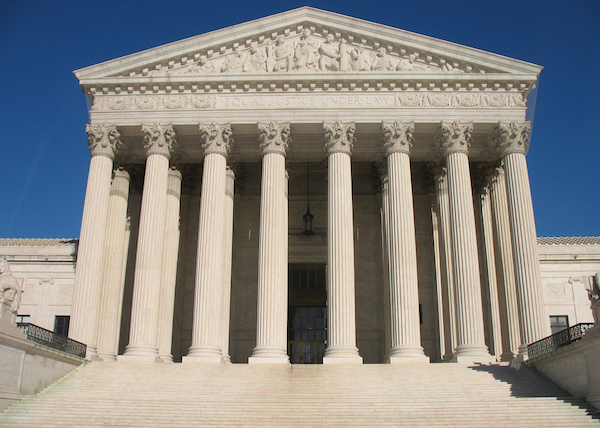
I love reading Supreme Court decisions and dissents. They are without rival in US public discourse. Even though the court is polarized in many ways, even their predictable decisions must come with reasons. Good reasons, bad reasons, odd reasons, but reasons nonetheless. That alone makes these things an all-too-rare treat.
The headlines and spectacles of coverage mostly miss the ways that these decisions not only set legal precedents, but also (and many times more importantly) advance public philosophical and conceptual notions, too.
Often, the easy wins and loses are not quite as influential as the small ways the social fabric of the conversation is changed or thickened.
Also, there are real policy suggestions that get ignored.
Today’s decision in the Hobby Lobby case was no different. Read it here. (Or at the very least read this very fair representation of it at Commonweal, by Grant Gallicho.)
I think the US has really missed the boat with regard to understanding healthcare, and this case shows at least one of the spots missing in the puzzle.
There was a single question answered by the Alito (on behalf of the Court) and reiterated by Ginsberg (on behalf of the dissent) that, to me, cuts to heart of one of the underlying issues. Oddly enough, it flips the tables on the traditional right/left spectrum of assumptions.
Here is Alito:
The most straightforward way of doing this [i.e., furthering a compelling governmental interest in the least restrictive way, which means providing the four FDA-approved contraceptives not being covered] would be for the Government to assume the cost of providing the four contraceptives at issue to any women who are unable to obtain them under their health-insurance policies due to their employers’ religious objections.
And here is Ginsberg, referring to Alito:
And where is the stopping point to the “let the government pay” alternative [proposed above]?
The conservative Court suggests that the government could provide contraceptives instead of Hobby Lobby et al and the liberal dissent asks where will the handouts end? Wild stuff! So fun. But also serious, in many ways.
This reply to the quandary of the case — What to do about religious objections to things that are otherwise unobjectionable in the eyes of the law? — shows the incredible weakness of the of US in its present for-profit healthcare model, in many ways worsened by the Affordable Health Care Act.
As I’ve written before (including in this book of essays), the idea that healthcare is presently a matter of private vs. public interests is a false dichotomy. Whether you hate big government or big business, healthcare is pretty much split between both of them, with lobby networks that sway the balance toward the so-called “private” sector. The point is that they are both big, gigantic even — and only one of them is at least in principle supposed to be public.
What the decision shows is this: a less restrictive approach to healthcare reform is when the the government provides access to legal healthcare. It also answers the question of the dissent. Under a federal coverage umbrella, individuals can opt out from almost all remotely reasonable religious objections imaginable.
Of course this will not happen in a situation where a for-profit corporation is buying insurance, under penalty of laws that are at least in part bought and paid for by other for-profit corporations, who the first ones are purchasing their healthcare plans from (so now the Court suggests that the government mediate the affair, as if this is not obvious).
And then there is Wal-Mart et al. There are many corporations who actually do what the Court recommends: they let and even encourage their employees get all of their healthcare (and more) from the government. This is only scandalous, of course, in a country where this is an option in the first place. What this ruling shows is how easy it is to forget that the system is still fundamentally broken well beyond the scope of 4 of the 20 FDA approved contraceptives for women and religious liberty for all the imaginable things one might object to, well beyond the scope of Judeo-Christianity.
One final note: nowhere in the decision does the Court make normative or axiological claims about contraceptives. Although the dissent implies it in certain places, it is well outside the scope of the Supreme Court to say what to make of the religious claims themselves. This is thorny because, at the very same time, the Court is doing exactly that by drawing the lines where religious opinion applies and runs out.
But to all the people trying to say that this is public legislation of morality and alike: read the decision and see that, despite its embedded contradictions, there is no “contraception is good/bad” content to this document. Nor should there be.















